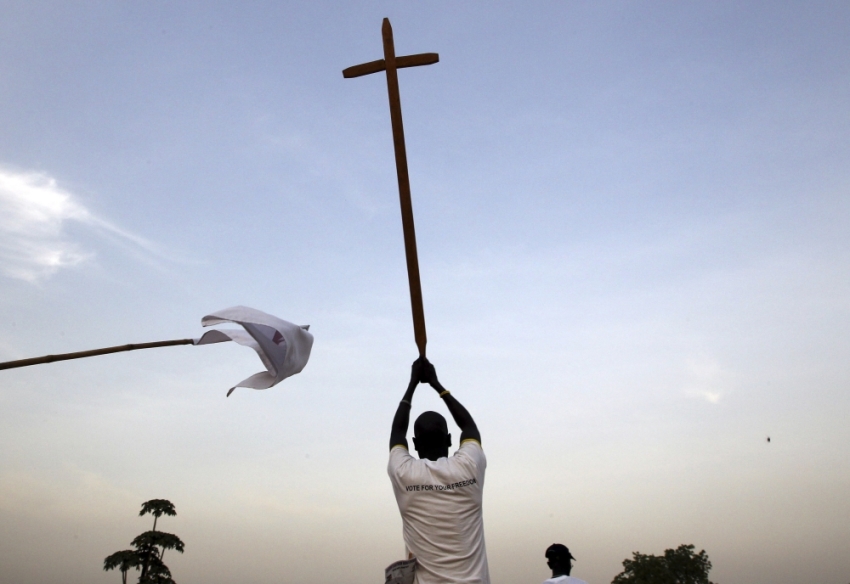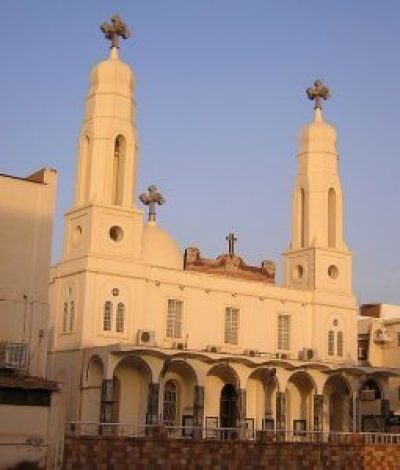Christians shot, injured in Sudan; Bible school bombed

JUBA, South Sudan — Among attacks on church buildings and mosques in Sudan after fighting broke out within the Sudanese military last month, a priest and other Christians were reportedly shot and injured in at least one assault with apparent anti-Christian motives.
Unidentified gunmen attacked the Coptic Orthodox Church of Mar Girgis (St. George) in the Masalma area of Omdurman, across the River Nile from Khartoum, in the early hours of May 14, according to Egyptian news outlet Watani. The assailants injured the Rev. Arsanius Zaria, his son Girgis, a church cantor identified only as Seifein, a guard identified only as Habashi, and parishioner Safwat Shawqy, said the bishop of Atbara and Omdurman, Anba Sarapamon, according to Watani.

All five received hospital treatment and have recovered, Sarapamon said.
Stating that the assailants arrived shortly before midnight on May 13, Reuters reported that the gunmen wounded the five present in a spray of gunfire while calling them “infidels” and telling them to convert to Islam. One witness told Reuters that the attackers shouted, “Where is the gold? Where is the money? Where are the dollars?” and, “You are Egyptians, sons of dogs.”
Two witnesses told Reuters that the attackers wore scarves across their faces, eyes uncovered, and mismatched clothing that included some items of uniforms of the Rapid Support Forces (RSF), which has been fighting the Sudanese Armed Forces (SAF) since April 15. The assailants reportedly looted and damaged the church site.
Fighting between the RSF and the SAF, which had shared military rule in Sudan following an October 2021 coup, has terrorized civilians in Khartoum and elsewhere, leaving more than 1,000 people dead. The Sudanese Ministry of Foreign Affairs accused RSF forces of attacking the Mar Girgis church, which the RSF denied, saying the assailants were extremist terrorists affiliated with the Sudanese army who had obtained RSF uniforms.
A group called the Democratic Lawyers Front told local media that an armed group riding in a non-military vehicle carried out the attack. The group also said the El Azhari Mosque and the Bur’i El Dereisa Mosque in Khartoum were bombed amid the military conflict, killing one worshiper.
The SAF’s Gen. Abdelfattah al-Burhan and his then-vice president, RSF leader Mohamed Hamdan Dagalo, were in power when civilian parties in March agreed on a framework to re-establish a democratic transition in April, but disagreements over military structure torpedoed final approval.
Burhan sought to put the RSF — a paramilitary outfit with roots in the Janjaweed militias that had helped former strongman Omar al-Bashir put down rebels — under the regular army’s control within two years, while Dagolo would accept integration within nothing fewer than 10 years. The conflict burst into military fighting on April 15.
Both military leaders have Islamist backgrounds while trying to portray themselves to the international community as pro-democracy advocates of religious freedom. Amid the fighting, the RSF on May 15 seized a central Khartoum cathedral after having evacuated the Coptic Orthodox Church of the Virgin Mary near the presidential palace on May 14, converting the latter into a military headquarters, according to Egyptian news outlet Mada.
Advocacy group Christian Solidarity Worldwide (CSW) noted the RSF had reportedly been intimidating and harassing those in the church for a week before forcing them to leave.
The RSF reportedly stormed buildings of the Episcopal church on Khartoum’s First Street on May 16 to use as a strategic base, Mada reported, adding that a vehicle belonging to the Roman Catholic Archdiocese of Khartoum was stolen at gunpoint.
On May 3, a Coptic Church in Khartoum North (Bahri) was attacked, after the Evangelical Church in the same area was bombed and partially burned in April, CSW reported.
On April 28, the Gerief Bible School in the Gerief West area of Khartoum was bombed. Its worship auditorium, halls and student dorms were destroyed, an area source told Morning Star News.
On April 17, gunmen raided the compound of the Anglican cathedral in Khartoum, the United Kingdom-based Church Times reported.
Violations
In Open Doors’ 2023 World Watch List of the countries where it is most difficult to be a Christian, Sudan was ranked No. 10, up from No. 13 the previous year, as attacks by non-state actors continued and religious freedom reforms at the national level were not enacted locally.
Sudan had dropped out of the top 10 for the first time in six years when it first ranked No. 13 in the 2021 World Watch List. The U.S. State Department’s International Religious Freedom Report states that conditions have improved somewhat with the decriminalization of apostasy and a halt to demolition of churches, but that conservative Islam still dominates society; Christians face discrimination, including problems in obtaining licenses for constructing church buildings.
The U.S. State Department in 2019 removed Sudan from the list of Countries of Particular Concern (CPC) that engage in or tolerate “systematic, ongoing and egregious violations of religious freedom” and upgraded it to a watch list. The State Department removed Sudan from the Special Watch List in December 2020.
Sudan had previously been designated as a CPC from 1999 to 2018.
Following two years of advances in religious freedom in Sudan after the end of the Islamist dictatorship under Bashir in 2019, the specter of state-sponsored persecution returned with the military coup of Oct. 25, 2021.
After Bashir was ousted from 30 years of power in April 2019, the transitional civilian-military government had managed to undo some Sharia (Islamic law) provisions. It outlawed the labeling of any religious group “infidels” and thus effectively rescinded apostasy laws that made leaving Islam punishable by death.
With the Oct. 25, 2021, coup, Christians in Sudan fear the return of the most repressive and harsh aspects of Islamic law. Abdalla Hamdok, who had led a transitional government as prime minister starting in September 2019, was detained under house arrest for nearly a month before he was released and reinstated in a tenuous power-sharing agreement in November 2021.
Hamdock had been faced with rooting out longstanding corruption and an Islamist “deep state” from Bashir’s regime — the same deep state that is suspected of rooting out the transitional government in the Oct. 25, 2021, coup.
Persecution of Christians by non-state actors continued before and after the coup.
The Christian population of Sudan is estimated at 2 million, or 4.5% of the total population of more than 43 million.
Morning Star News is the only independent news service focusing exclusively on the persecution of Christians. The nonprofit's mission is to provide complete, reliable, even-handed news in order to empower those in the free world to help persecuted Christians, and to encourage persecuted Christians by informing them that they are not alone in their suffering.



























